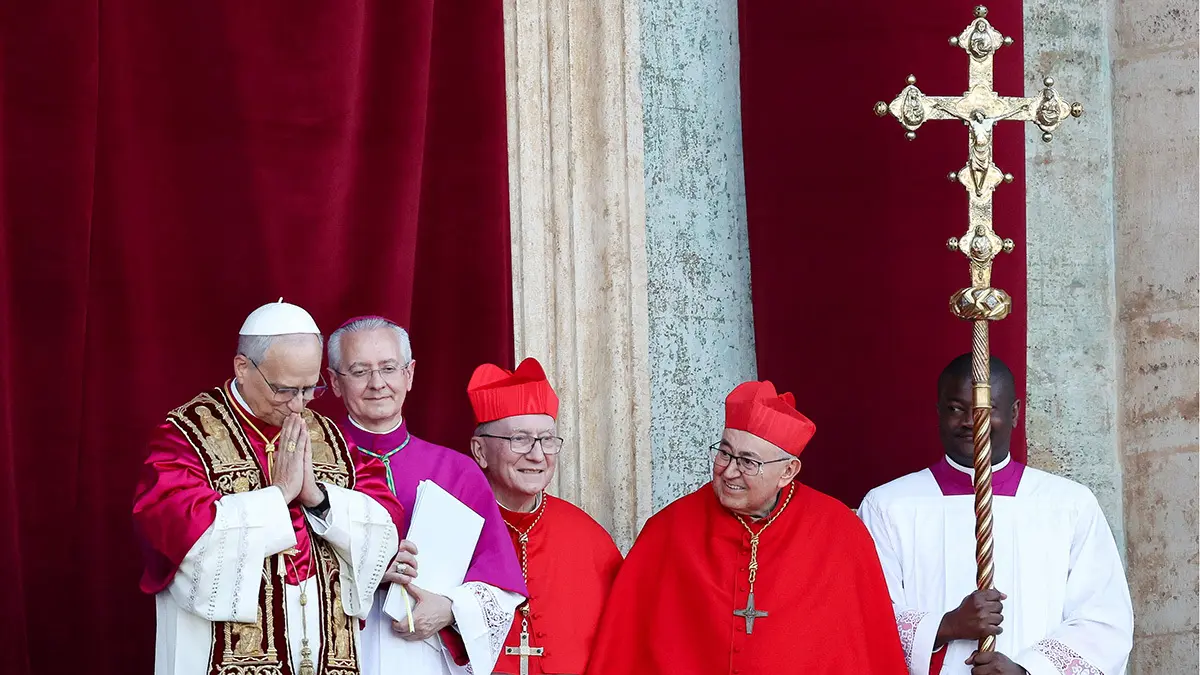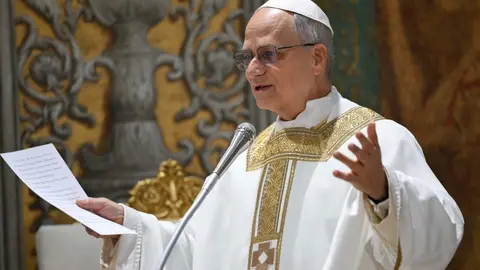Universality

Although the Roman Empire had been officially Christian since Theodosius, the Bishop of Hippo criticized its excessive abuses and bloody conquests.
But the violence perceived by the philosopher in the exercise of Roman power multiplied when the Goths under Alaric I entered Rome and sacked it. The perception of that dying imperial order and that uncivilized and brutal alternative led Augustine to conceive a new order that would transform society based on the construction of a spiritual sphere, represented by the Church, and an earthly sphere, represented in the Middle Ages by the Holy Roman Empire, in whose coexistence God's plan for humanity would unfold.
The universal political idea of Christianity slowly gained ground until finally, in 800 AD, Charlemagne was crowned Emperor of the Germanic Roman Empire and Protector of the Pope, then Leo III.
The separation between the power of the Church and that of the State took shape in medieval Western Europe, but not in the Eastern Roman Empire, where such a division, proposed by political Augustinianism, would not be replicated. Its indivisibility was also strictly protected by the so-called “Donation of Constantine” (451 AD), which granted the Patriarch of Constantinople superiority over the Bishop of Rome.
However, Augustine's thinking remained influential as the moral auctoritas of the Church and the potestas of the states balanced the dispute between interests, corrected grievances, and faced the challenges of the progressive expansion of knowledge in the Modern Age.
The historical failures of Catholic and Christian political projects and leaders have not undermined the will of Christianity or the Catholic Church to harmonize an order of coexistence between political and religious power with a common human and social goal for both.
The essence of the approach has not necessarily been to find an ideal political model, as the philosopher once proposed, but rather to identify, as St. Augustine did, the perversions of the existing order and denounce them, to reject dehumanizing alternatives, and to seek a formula for continuing to advance reforms to make the order more consistent with the dignity of the person.
Catholic means universal. And in the days that have passed between the death of Pope Francis and the election of Pope Leo XIV in Rome, the understanding of the concept of universality has been reinforced. After being elected by a conclave made up of electors from the East and West, from the South and the archipelagos, an Augustinian follower of Christ, inspired by that fifth-century bishop who was concerned with putting himself in order and who then set about responding to the inhuman destiny of his time, has given a first message that does not impose or seek to impose anything on anyone: “Dear sisters and brothers. This is the first greeting from the risen Christ, the good shepherd who gave his life for the flock of God. I too would like this greeting of peace to enter your hearts and reach your families, all people everywhere, all peoples, all the earth. Peace be with you.”
The pontificate of the first Augustinian pope in history has begun. A philosopher and mathematician, Leo XIV faces a challenge similar to that faced by his teacher Augustine. One, a Roman and apostle on the outskirts of Rome, Africa. The other, an American and apostle in the Global South. One, dismayed by the excesses of Roman power and barbarism. The other, with the excesses of war and the neglect of the poor. One thinking about how to rebuild a new order. The other, about how to universalize it.
The universality that Leo XIV and the Church he leads have put on the table does not mean spreading the message of Christ to Christians so that they can build a wall against the aggressions of the pagan world. Nor does it mean closing the city's doors to those who want to understand and project it. Nor does it mean demanding that the powers that be submit to its doctrine. It means conveying it to all those who can understand it as a source of inspiration for advancing the universality of its essence: dignifying the person through mercy toward each and every one of them.


